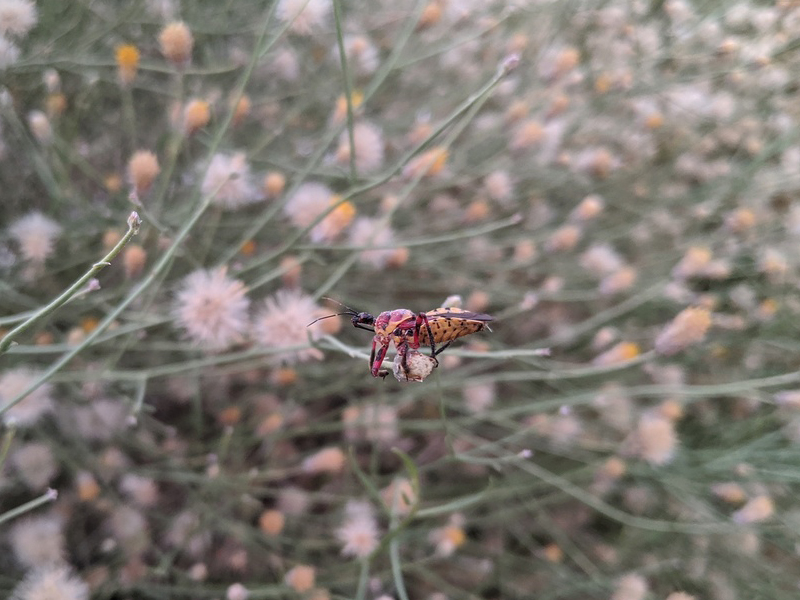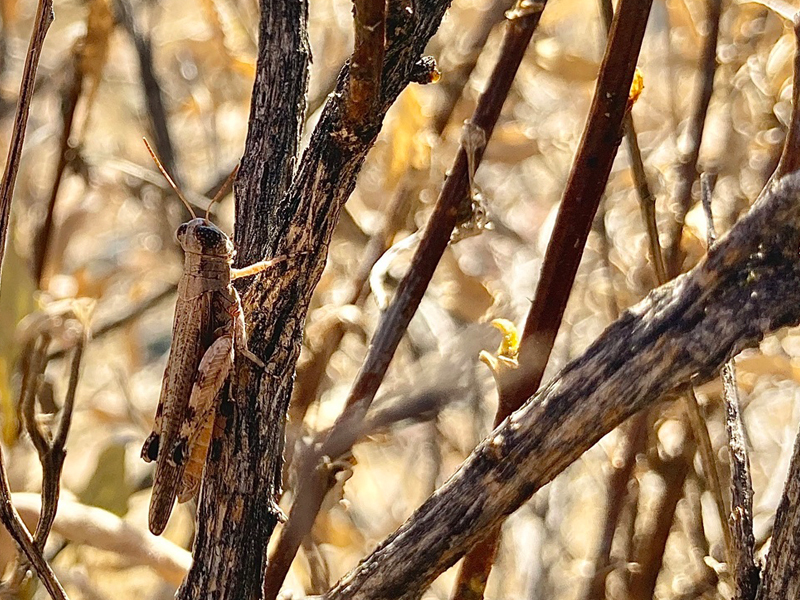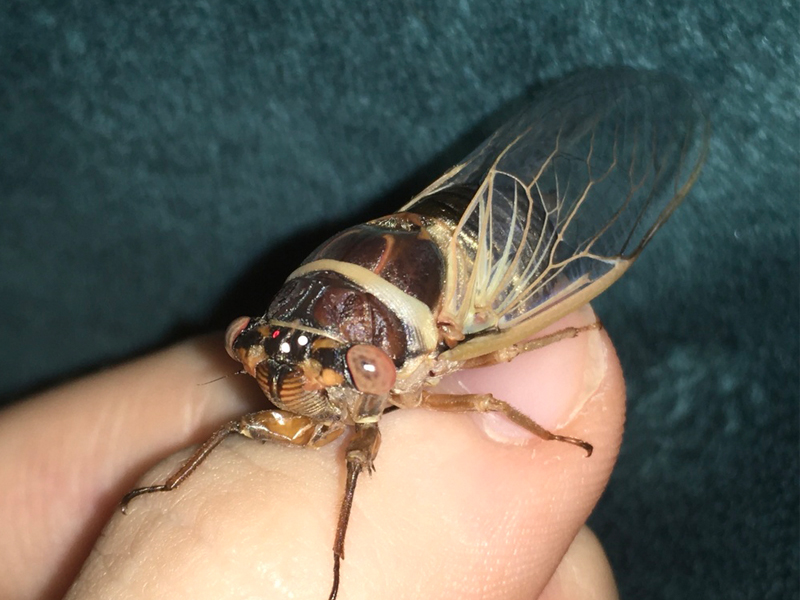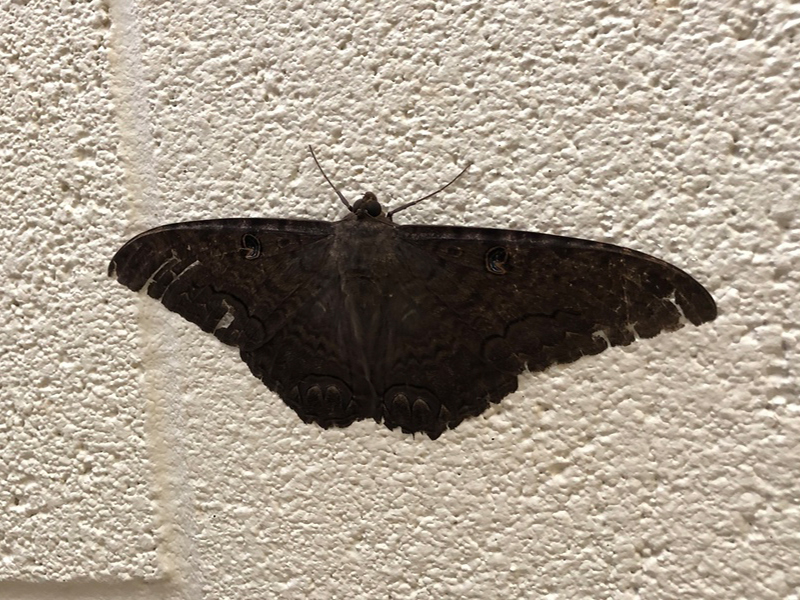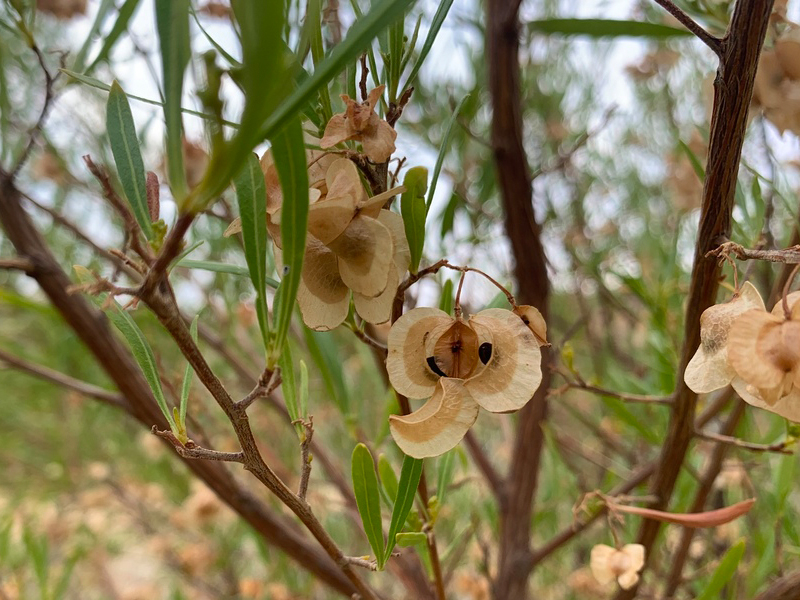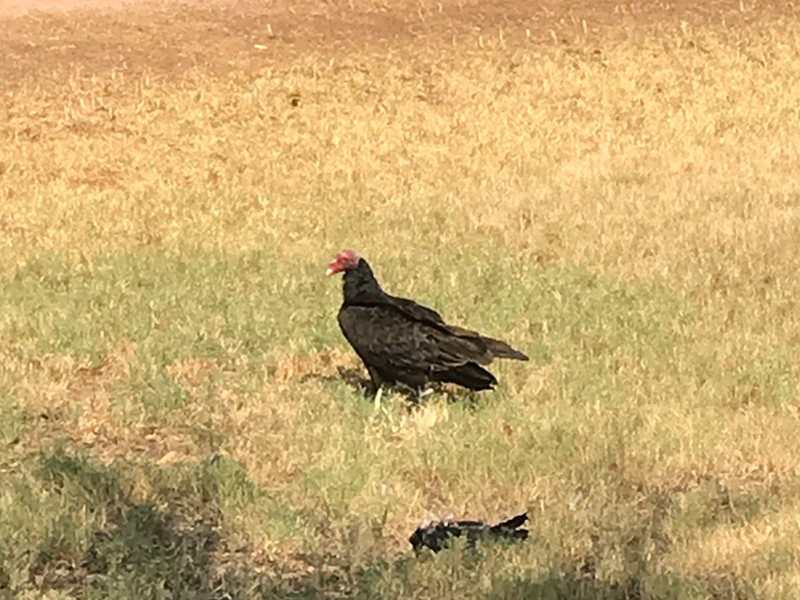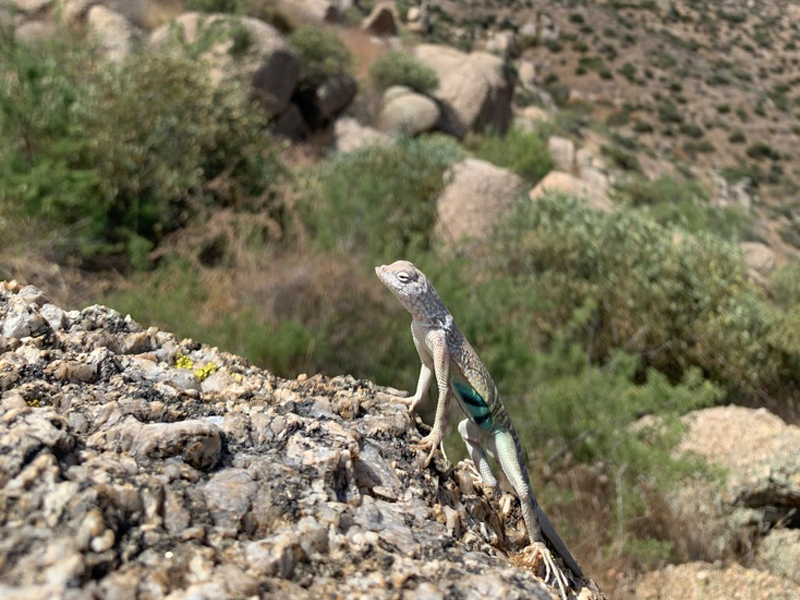For the last few months, Desert Botanical Garden and the Central Arizona Conservation Alliance have asked for your help to find and photograph the plants, animals and insects in your neighborhood, on local trails and around town. In doing so, you are helping the Garden with a new initiative, the EcoFlora project, to take inventory of the plants and wildlife in the Phoenix metro area. This data will inform conservation organizations how to protect and preserve the native plants and wildlife in the area.
With a few months of observations recorded, take a look at some of these interesting, weird and beautiful plants, insects and creatures that call Phoenix metro area their home.
Monsoon Season Highlights
The creosote bush grasshopper (Ligurotettix coquillettii) are more heard than seen during monsoon season. You have to trick them by placing your hand underneath the stem to force them to reveal themselves. They are distinguished by their characteristic double-click chirrup. Great observation, seahale!
Observer zavienf found an citrus cicada (Diceroprocta apache) in their neighborhood. These insects are partially responsible for the loud buzzing that you hear during monsoon season.
Check out this observation by jsigismondi. This is the black witch moth (Ascalapha odorata). Reportedly the largest moth in the continental US, these beautiful moths come to visit us during the summer, monsoon season. They can have a wingspan of up to 6 inches.
Other Interesting Finds
Observer larivera spotted this yellow-bellied bee assassin (Apiomerus flaviventris) right on the border of Tempe and Mesa.
And how neat are the seed pods on this Akeake (Dodonaea viscosa), which was recorded in Carefree by kenziebell2?
Did you know there are turkey vultures (Cathartes aura) in Gilbert? Observer jaydensherwood made this observed fella a few weeks ago.
And this greater earless lizard (Cophosaurus texanus) was warming up in McDowell Mountain Regional Park when kenziebell2 snapped this photo.
Join in the project by signing up for the EcoFlora project.
